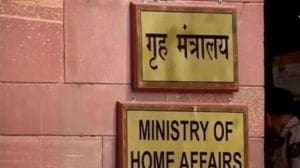Over to the MPs
On the Lokpal Bill,Veerappa Moily is falling all over himself and could trip Parliament too.
Union law minister Veerappa Moily is a confident man these days. He has committed his government to meeting an August 15 deadline to have the Lokpal bill passed by Parliament. As per his calendar,he told reporters,the bill should be drafted by June 30,and its passage thereafter in the monsoon session should be possible if all cooperate. The urgency in the ministers words is arresting. It is not just that he claims to hasten law-making in the aftermath of Parliaments winter session being abandoned to a standoff between the government and the opposition and the budget session curtailed so that MPs could campaign for assembly elections. If his words were meant to reassure us that Parliament will devote itself to the pending legislative business to make up for a bad year,it would be heartening. No,the disquiet over Moilys statement draws from the fact that he is committing his governments,and Parliaments,support to a legislation whose eventual draft no one can be sure of at this point.
The casualness with which the Union law minister can commit the highest law-making body in the land to a deadline imposed by an activist,sadly,doesnt only reflect on Moilys low estimation of Parliament. If civil society activists really believe they can ask MPs to do their bidding,the current situation frames an alienation for which the entire political class must hold itself responsible. When Parliaments legislative and deliberative business is so easily,and so regularly,subordinated to the oppositions protests and the governments reluctance to reach out across the aisles to forge bipartisan engagement on bills,is it really surprising that we have reached this moment? A moment when the high street has arrogated to itself the right to give dictation to Parliament a right being conceded by a Union minister,to the detriment of Parliaments unique role in gathering through its members the noise and concerns of our towns and villages.
Many reasons have been put forth for the legislatures gradual weakening. For instance,the anti-defection law has been sequentially strengthened to take away from the individual MP the right to vote differently from her party whip. When the party whip defines an MPs choices,an individuals voting record counts for little. It relieves the ruling party/ coalition of the need to convince MPs as individuals of the need for a legislation; it makes it easy for opposition parties to be naysayers without fearing a rupture in their ranks. That is why we sometimes have the spectacle of a clutch of bills being passed in minutes on a voice vote. If a bunch of noisy activists,and the law minister too,think they can force another voice vote at an appointed hour,the political class should see the moment for the crisis it highlights.
- 01
- 02
- 03
- 04
- 05































